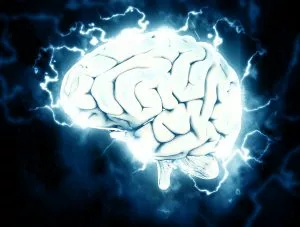
A traumatic brain injury or TBI can be caused by a blow or bump to the head. We are familiar with concussions from watching football, but traumatic brain injuries can also be caused by falls, car accidents, or other violence. Similarly, many combat veterans have experienced traumatic brain injury from explosive blasts.
Every 23 seconds, on average, someone in the United States suffers a traumatic brain injury. Using 2013 data, the most comprehensive data available, The Centers for Disease Control and Prevention (CDC) reported approximately 2.5 million people were taken to the emergency room with a traumatic brain injury and 282,000 people were hospitalized with TBIs. Further, the CDC estimates that 30% of all injury-related deaths are the result of traumatic brain injury.
The difficulty with a traumatic brain injury is that it is an invisible injury. Often, TBI signs do not show up on traditional CT scanning or MRI. It is common for those suffering from a TBI to “pass” commonly used testing like the Glasgow Coma Scale test, and to be misdiagnosed.
Traumatic brain injuries are especially common in children. A 2017 survey of students in grades 9 through 12, found 15%, or 2.5 million students, in the United States reported at least one concussion in the prior year.
It is important to know the signs and symptoms of a traumatic brain injury so that you can ensure that you, or your child, get the best care possible for this serious injury.
According to the Mayo Clinic, the signs and symptoms of a traumatic brain injury include:
Physical symptoms
Sensory symptoms
Cognitive or mental symptoms
Some of these symptoms may appear right away. Others may not show up for days or months after the injury, or until the injured person tries to resume his or her everyday life. Sometimes, people do not recognize that their symptoms are connected to a head trauma. Others may not admit they have a problem or understand how the symptoms they are experiencing impact their daily activities.
The signs and symptoms of a concussion can be difficult to figure out. Family members, doctors, and even the person with the concussion may overlook problems or not realize they are related to a head injury. People may look fine even though they are feeling “off” or strange. Ignoring symptoms, however, can be dangerous and lead to complications and/or a slower recovery. It is critical you find a team of doctors who specialize in brain injuries who can ensure you get proper testing and treatment for your injury.
An experienced lawyer, like the personal injury lawyers at The Collins Law Firm, can connect you with doctors and specialists who know how to recognize and treat a traumatic brain injury. If your head trauma was caused by another individual or company’s negligence, they can also bring a claim and seek the maximum compensation for your injuries.

"*" indicates required fields